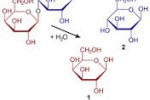 2 Terms
2 TermsHome > Industry/Domain > Biology; Medical > Human genome
Human genome
The human genome consists of 23 chromosome and the small mitochondrial DNA. 22 of the 23 chromosomes are autosomal chromosome pairs and the last one being a gender-determining pair. In total, the human genome contains the sequences of the 3 billion chemical base pairs that make up human DNA and approximately 20,000-25,000 genes. By understanding human genome, scientists are able to develop new medical applications that can significantly advance the state of health care.
Contributors in Human genome
Human genome

Carbohydrate
Medical; Human genome
A sugar molecule. Carbohydrates can be small and simple (for example, glucose) or they can be large and complex (for example, polysaccharides such as starch, chitin or cellulose).
Calcinosis
Medical; Human genome
Deposition of calcium in normally non calcified tissue Definition from: Unified Medical Language System (SNOMED Clinical Terms) at the National Library of Medicine.
Cell division
Medical; Human genome
The process by which cells multiply involving both nuclear and cytoplasmic division.
Carboxylate
Medical; Human genome
To introduce carboxyl or carbon dioxide into (a compound) with formation of a carboxylic acid.
Cerebrum
Medical; Human genome
1) The largest part of the brain. It is divided into two hemispheres, or halves, called the cerebral hemispheres. Areas within the cerebrum control muscle functions and also control speech, ...
Chorionic villi sampling
Medical; Human genome
A method for diagnosis of foetal diseases by sampling the cells of the placental chorionic villi for DNA analysis, presence of bacteria, concentration of metabolites, etc. The advantage over ...
Congenital
Medical; Human genome
1) Present from birth, but not necessarily genetic 2) Congenital conditions are those present from birth. Birth defects are described as being congenital. They can be caused by a genetic mutation, ...


